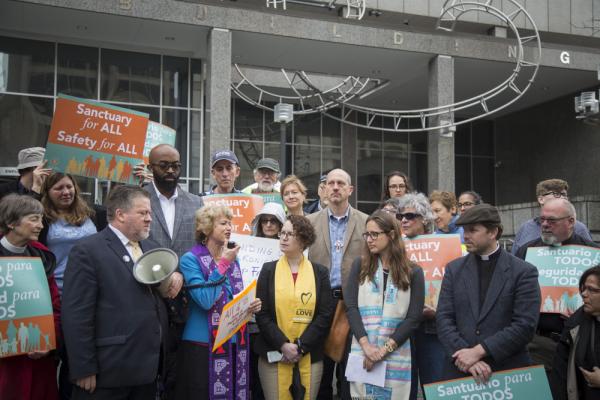Apr 4, 2017
The vigil, organized by the DMV Sanctuary Congregation Network, was served to publicly accompany Veronica to her hearing — one key tenet of providing sanctuary, immigration activists say. Advocates pledged to stay at the ICE offices until her appointment was complete.
Read the Full Article

Already a subscriber? Login
